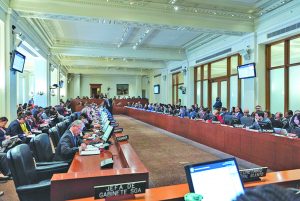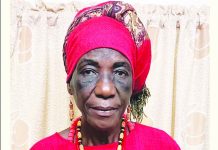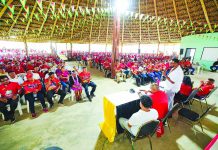– resolution adopted urging return to democracy, free and fair elections
On the same day as the swearing-in of Venezuela President Nicholás Maduro, Guyana was among 19 countries to support a resolution refusing to recognise the legitimacy of a Maduro Government and to call for fresh elections.
This resolution was taken at the level of the Permanent Council of Organisation of American States (OAS), of which Guyana is a member. When the dust from voting had settled, OAS Assistant Secretary General Nestor Mendez announced that 19 voted in favour of the resolution, six were against it and there were eight abstentions and one member completely absent.
According to the resolution, the OAS would not recognise the legitimacy of Maduro’s new term as President. The resolution also urges member states to use lawful, diplomatic, economic and financial measures to restore democracy to Venezuela.
Among other things, it also calls for new, free and fair presidential elections to be held. The resolution notes that last year’s election failed to meet international standards for elections and lacked legitimacy.
The resolution also seeks “to invite Member States and Permanent Observers to implement measures to address the humanitarian crisis in Venezuela and impacted countries, through the support to appropriate international and regional organisations.
It also urges “the Venezuelan regime to allow the immediate entry of humanitarian aid to the people in Venezuela, including epidemiological surveillance, to prevent the aggravation of the humanitarian and public health crisis, particularly against the reappearance and propagation of diseases,” going on to demand “the immediate and unconditional release of all political prisoners.”
The OAS resolution also assures the Venezuelan people of its solidarity and

American States (OAS Photo)











